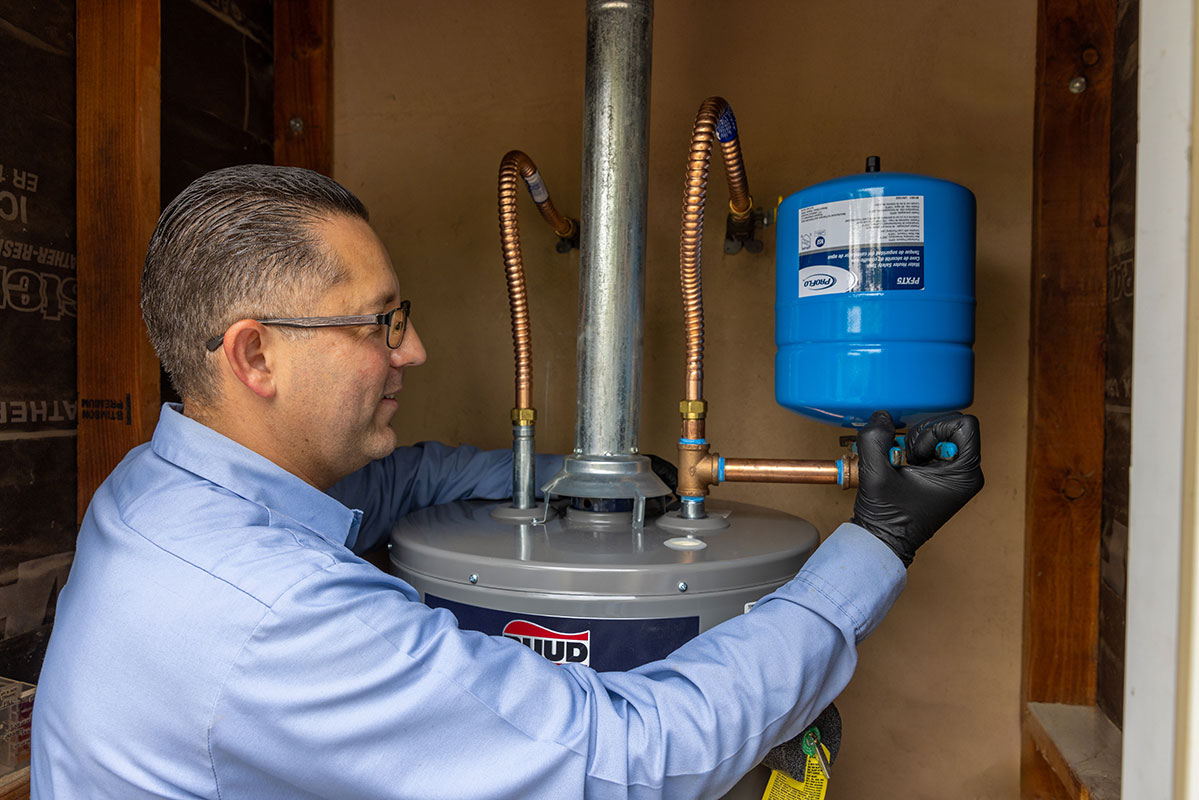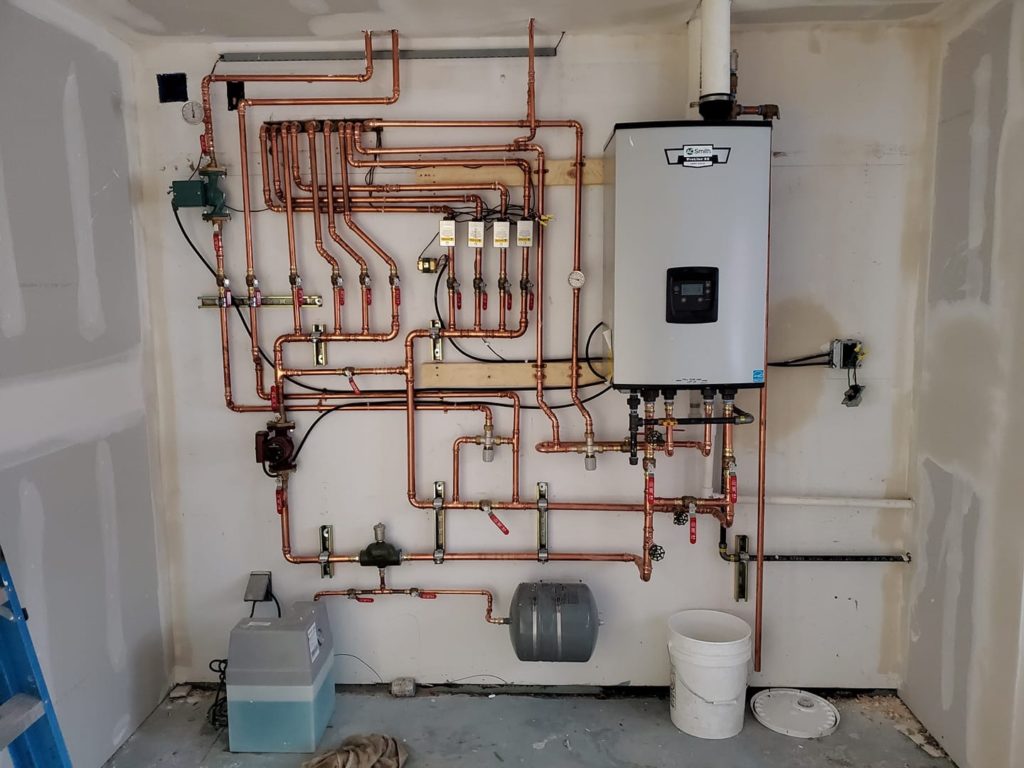Experienced Plumber Denton Offering 24/7 Plumbing Services
Experienced Plumber Denton Offering 24/7 Plumbing Services
Blog Article
Total Overview to Water Heating UnitSetup and Replacement
Understanding the details of water heater installment and substitute is critical for house owners seeking to ensure effectiveness and dependability in their warm water supply. From selecting the suitable kind and dimension to carrying out a seamless installment process, numerous aspects must be considered to stay clear of common mistakes. This guide will give you with the required actions and understandings to navigate the intricacies of this home renovation task, while additionally stressing vital upkeep methods that can lengthen the life of your system. As you discover these facets, you may locate yourself reassessing your existing setup and recognizing areas for enhancement.
Types of Water Heaters
When thinking about hot water heater setup and substitute, it is important to recognize the different types of hot water heater offered in the market. One of the most common types include container hot water heater, tankless water heating systems, heatpump water heaters, and solar water heaters.
Tank water heating systems are conventional systems that keep a details quantity of warm water, making them conveniently available when needed. In comparison, tankless water heating units offer warm water on need, removing the demand for storage.
Heat pump water heating systems make use of electrical power to move heat from the air or ground to heat water, using significant power financial savings yet calling for more area and particular setup conditions. Solar water heating units harness solar energy to warm water, supplying a green alternative with possible lasting price financial savings, although they usually call for a back-up system for over cast days.
Understanding these options makes certain educated decisions concerning installation and substitute, providing to specific demands and choices.
Choosing the Right Dimension
Choosing the suitable dimension for a water heating unit is important to guarantee optimum efficiency and efficiency. A device that is as well small will certainly struggle to fulfill home needs, causing inconsistent warm water accessibility and increased power consumption. On the other hand, an oversized water heating system can lead to unneeded energy waste and greater utility bills.
To determine the best dimension, think about the house's top warm water usage. This can be calculated based on the variety of occupants and their regular warm water requirements. For example, a household of 4 may call for a water heating unit with a capacity of 50 to 80 gallons, depending upon the use patterns, such as simultaneous showers and washing.
Furthermore, assess the recovery price, which gauges how swiftly a heater can renew warm water after it has been utilized. For tankless versions, focus on the flow price, gauged in gallons per min (GPM), to guarantee it satisfies the home's simultaneous demand.

Installation Refine Summary

Next, the old device needs to be detached and removed, taking treatment to comply with local codes and laws relating to disposal. Once the old device is out, the new hot water heater can be positioned in position. This step entails linking the water supply lines, making sure that all fittings are safe and secure and leak-free.
After developing water connections, it's essential to link the power supply, whether electric or gas, complying with the supplier's directions meticulously. When all links are made, the system ought to be like it loaded with water, and the power can be turned back on. It's crucial to examine for leaks and make certain the water heater is functioning properly prior to completing the installation procedure.
Usual Installment Mistakes

An additional frequent error is neglecting to comply with local codes and guidelines. Failing to stick to these standards can not only bring about security threats but might also lead to costly penalties or the need for expensive reinstallation. Additionally, inappropriate venting is an important problem. Inadequate air flow can create dangerous gas accumulation, posing severe health dangers.
Failing to secure links or utilizing the wrong kind of installations can lead to leaks and water damages. By staying clear of these typical installation blunders, home owners can guarantee their water heater runs safely and efficiently, maximizing efficiency and durability.
Maintenance Tips for Long Life
Appropriate maintenance of a water heating system is crucial for its durability and optimal efficiency. Regular examinations and servicing can protect against expensive repairs and expand the appliance's life-span. Begin by inspecting the temperature level setting; it should normally be set in between 120 ° F and 140 ° F for ideal power effectiveness and safety.
Every 6 months, flush the container to remove debris accumulation, which can impair home heating efficiency and create corrosion. To do this, switch off the heater, attach a hose pipe to the drainpipe shutoff, and let the water run till it is clear.
Anode rods need to be examined each year and replaced when they are rusted. These poles assist prevent storage tank deterioration by attracting destructive elements in the water.
Additionally, inspect the pressure safety valve routinely to guarantee it is working properly. This valve is essential for avoiding too much pressure accumulation within the tank.
Last but not least, think about arranging a professional maintenance check every couple of years for comprehensive examinations and maintenance. By sticking to these upkeep suggestions, homeowners can dramatically boost the effectiveness, security, and life-span of their water heaters, ensuring reputable hot water for read the full info here many years ahead.
Verdict
Finally, correct installment and upkeep of water heating systems are vital for making sure effectiveness and durability (water heater installation). Selecting the suitable kind and dimension, sticking to setup guidelines, and staying clear of usual errors substantially add to ideal performance. Normal upkeep checks and specialist servicing assistance receive capability and stop costly repair work. By understanding these essential aspects, homeowners can attain a trusted warm water supply while minimizing possible problems connected to water heating system operation.
Recognizing the ins and outs of water heating unit installment and replacement is crucial for house owners looking for to guarantee performance and reliability in their warm water supply.Storage tank water heaters are typical systems that save a certain quantity of hot water, making them conveniently offered when needed. In comparison, tankless water heating units give hot water on demand, eliminating the demand for storage space. Selecting a water heater that is either as well tiny or also huge can lead to ineffectiveness, click for source resulting in poor hot water supply or excessive power consumption.
By comprehending these important elements, home owners can accomplish a reputable warm water supply while decreasing potential issues connected to water heater operation. pipe repair.
Report this page